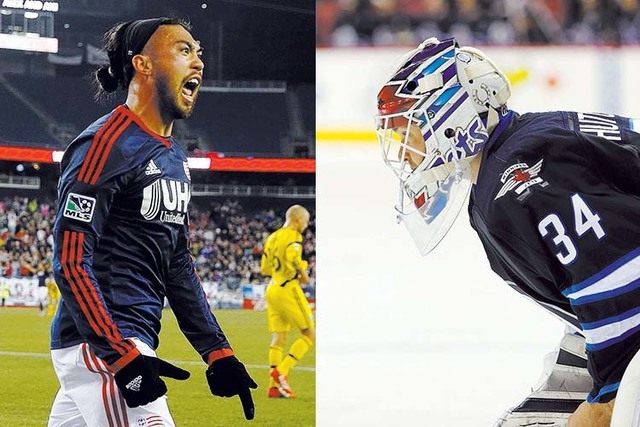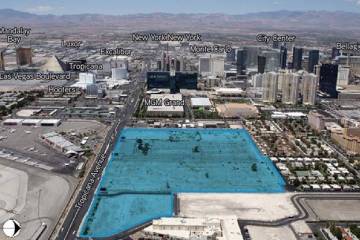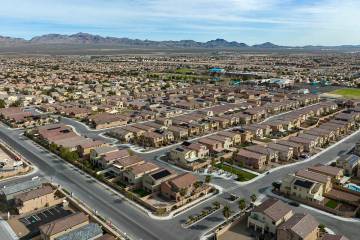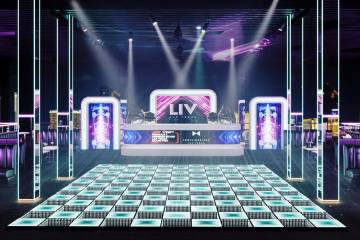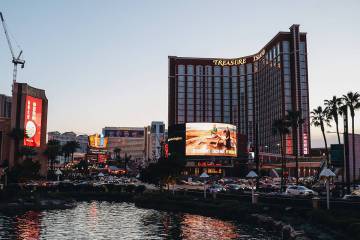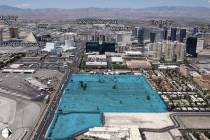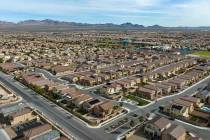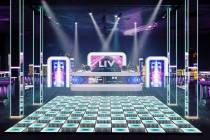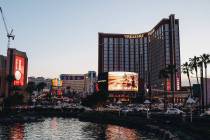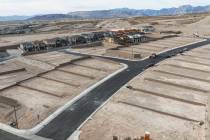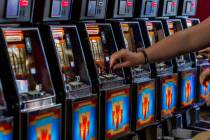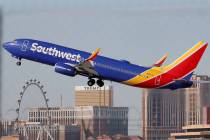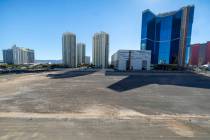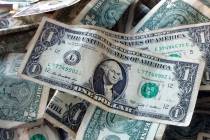Soccer vs. NHL: Comparing the proposals
Two very different groups are taking contrasting approaches in their efforts to bring the first major-league sports team to the Las Vegas market. It’s Major League Soccer versus the National Hockey League. Here’s your scorecard for the two groups and the issues.
OWNERSHIP: Who’s making the proposals?
MLS: Findlay Sports & Entertainment/The Cordish Cos. Findlay Sports is run by the Las Vegas-based Findlay family, which owns a chain of car dealerships. Cordish is a real estate development company based in Baltimore that specializes in building entertainment districts.
NHL: Bill Foley/Maloof brothers. Foley is the billionaire chairman of Fidelity National Financial, a mortgage and title insurance company based in Jacksonville, Fla., owns 14 wineries in the West and a cattle ranch and golf course community in Montana. Joe and Gavin Maloof are former owners of the National Basketball Association’s Sacramento Kings (1998-2013) and developed the Palms in Las Vegas.
PUBLIC MONEY: How much do they want from taxpayers?
MLS: $56.5 million. Findlay/Cordish wanted the Las Vegas City Council to help pay for a soccer stadium and the Council ultimately voted to pay $56.5 million toward the stadium, plus give free land valued as high as $48 million.
NHL: $0. Foley/Maloof has not asked for any public money.
PLACE: Where would the games be played?
MLS: Findlay/Cordish wants to build a $200 million, 24,000-seat stadium on 13 acres in downtown Symphony Park. They would own and manage it and receive all the revenues.
NHL: Foley/Maloof has an agreement in place to lease a $375 million, 20,000-seat arena being built privately by the partnership of MGM Resorts International and Los Angeles-based Anschutz Entertainment Group on 16.5 acres behind New York-New York. It’s scheduled to open in April 2016.
TICKET DEPOSITS: Is there a viable market?
MLS: Findlay/Cordish has not held a season ticket deposit drive, but says a number of companies would pay for suites. They claim 17 regular season home games would generate average attendance of 18,000 per game.
NHL: Foley/Maloof is launching a season ticket drive on Feb. 10, aiming for at least 10,000 season ticket commitments to show the NHL that Las Vegas is a viable big-league hockey market. The MGM-AEG arena offers 18,000 seats for hockey for 41 regular-season home games.
THE POLITICS: Who’s on who’s side
MLS: The city’s stadium subsidy for Findlay/Cordish prompted Councilman Stavros Anthony to run for mayor against Mayor Carolyn Goodman and Councilman Bob Beers started a signature drive to force a June public vote on the subsidy.
NHL: Foley/Maloof received the political endorsement of Gov. Brian Sandoval in their attempt to start a NHL team in Las Vegas.
LEAGUE’S RESPONSE: What do MLS and NHL officials say?
MLS: Findlay/Cordish met with MLS officials in November to pitch Las Vegas, which is competing against Sacramento, Calif., and Minneapolis for a final team slot as MLS expands to 24 teams. MLS is expected to pick the city in the first half of 2015.
NHL: Foley/Maloof got the green light from NHL Commissioner Gary Bettman in December to launch a ticket deposit drive in Las Vegas. Foley said if Las Vegas buys 10,000 ticket deposits he would be “shocked” if Las Vegas doesn’t get an NHL team, and he hopes to start by the 2016-17 season. The NHL is intrigued by the Las Vegas market, but has not officially announced whether it will expand to Las Vegas.
TICKET COST: How much would fans pay?
MLS: $17 (leaguewide average per game)
NHL: $62 (leaguewide average per game)
EXPANSION FEE: How much to get in?
MLS: About $100 million
NHL: About $450 million



